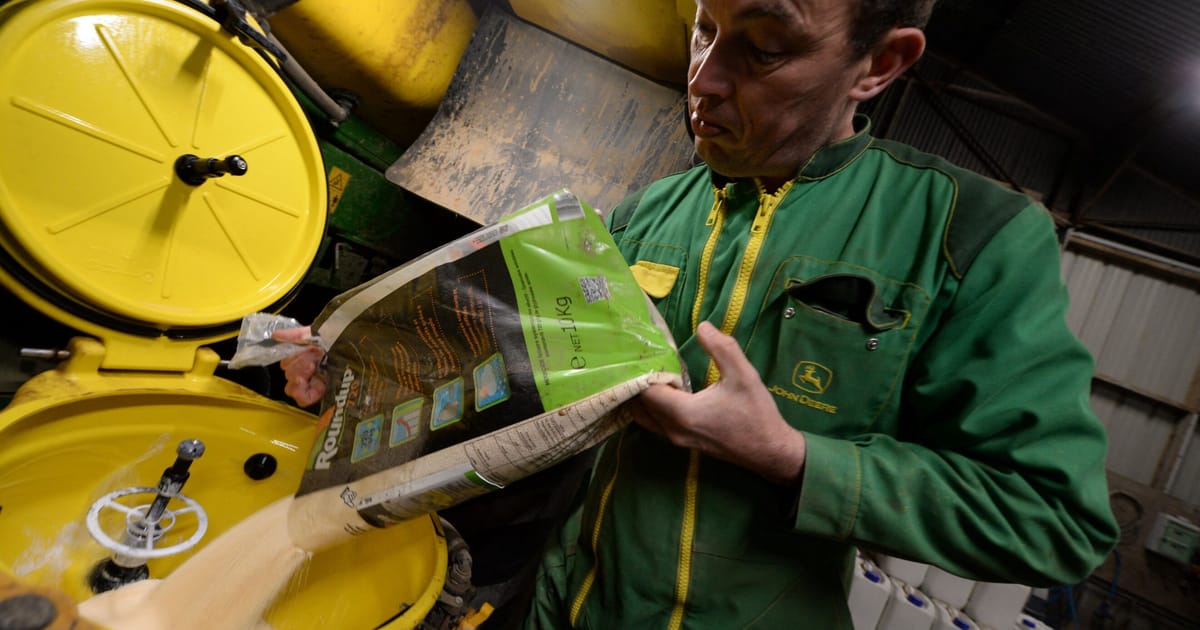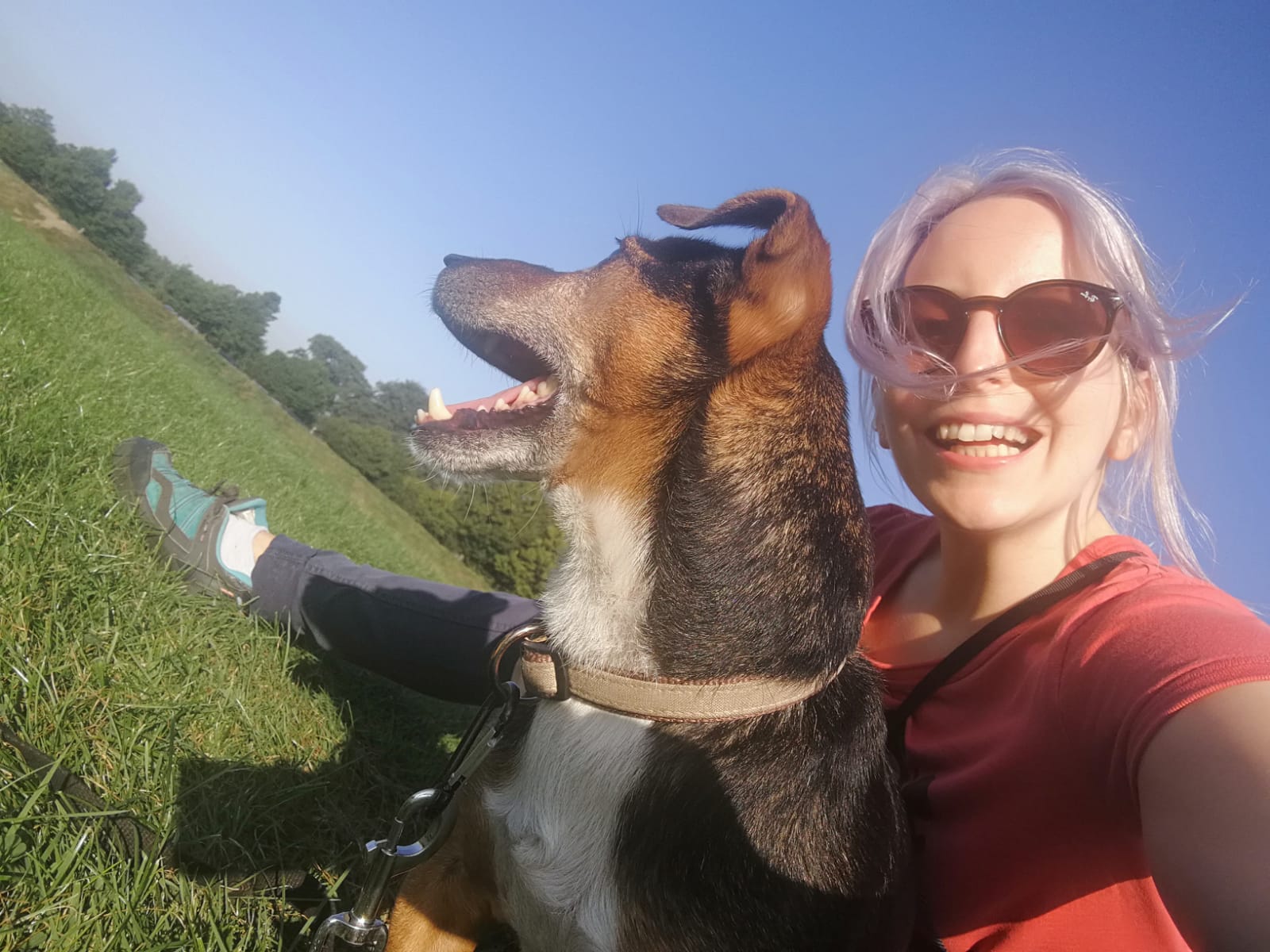While the EU’s food safety regulator did not identify any “critical areas of concern” for human, animal and environmental health from glyphosate use in agriculture, it noted that the risk assessment could not be completed for a number of key endpoints. EFSA also acknowledged that there is evidence linking the use of the herbicide to neurotoxicity, damage to the microbiome and harm to biodiversity.
Then on what grounds did they decide that it’s “safe enough”? The billions of € that Bayer lobbied to keep their blockbuster chemical on the market?
Its a herbicide, it’s supposed to cause damage to biodiversity by eliminating unwanted plants. That’s the whole point of them, all herbicides do this.
The neurotoxicity (as far as from what I’ve seen from the very public lawsuits) seems to be when applicators are doing things like getting doused in it, or mixing it with their bare arms. Granted, the people who sold it said they could, so you can’t blame them. But there’s a massive difference between “dangerous when you shower in it” And “dangerous if you eat plants that once touched it”.
I’m open to being corrected on either point, but right now the alternatives are worse for the environment than the glyphosate is.
And that’s why Bayer needs to spent millions to lobby this.
It’s not just eliminating unwanted plants, it eliminates biodiversity including needed plants and insects.
It is not containable to the field you bring it on, so it kills plants far away from the fields too, it is in the end in our food and in wildlife and worse, it is part of a cycle that makes it hard to go back to a more environmental and climate friendly way of producing food, which we desperately need to do.
Once you start the cycle you need to buy Glyphosate, need to buy specific plants that get not eliminated by that plant killer (none of them do provide food for insects or if they do kill them), need to buy specific fertilizer, without these plants won’t grow and on top this is so expensive that you need to get the most out of your field which means using a huge machine park which hardens the ground which then dries out easily, needs a lot of ground water and can’t deal with heavy rainfall and on top is one reason we lose valuable humus that gets washed away.
It is bad for the rich Western countries, it is literally turning places into deserts in the developing world right now. It is not where we need to go and on top of all of that there is a risk of cancer that again they “could not complete a risk assessment” for.
That is not entirely accurate as far as I understand from a friend who farms different crops. He said he has the choice between tilling a field to get rid of weeds and spraying it. Glyphosate is active on the living plants on that field, so all weeds die (as they would if he were tilling), but the soil remains fertile as it is not dug up and dried out. A week after spraying, the effect is gone and he can start planting.
Special hybrid crops with glyphosate resistance are expensive because they increase the yield and enable you to spray pests while the crop is growing without killing the crop. You might as well plant conventional seeds after spraying glyphosate, but you can’t fight weeds with glyphosate after you have planted.
I’d say it has more to do with inflation and prices. It would be great if people were willing to pay adapt their habits so that we could have safe and sustainable farming, but that just isn’t the case. I mean, how many vegans who only buy seasonal and regional food do yo know?
Banning glyphosate would decrease yields and therefore rise prices. That would make people unhappy and not just Bayer’s shareholders.
The amount of wheat wasted in the EU alone is equal to roughly half of Ukraine’s wheat exports, and a quarter of the EU’s other grain exports, it says.
As long as we throw away what we produce with Glyphosate and the prices are rising anyway, what is the argument here? There is a lot we can do to produce more climate and environmentally sustainable until we actually would start to have less food.
If we keep harming the climate and environment we will lose in the long run way more than if we would short term by stopping Glyphosat. If we never start, this is never going to happen. This could end any chance of a change for 15 years.
As long as we throw away what we produce with Glyphosate and the prices are rising anyway, what is the argument here? There is a lot we can do to produce more climate and environmentally sustainable until we actually would start to have less food.
Because we can’t magically become more efficient. I suppose the increased prices have already helped with food waste and there should be some improvements made (e.g. better education about best before dates), but waste is unfortunately not easy to avoid. Humans screw up and therefore waste stuff. That’s not going to change any time soon.
As I said there are drastic solutions and I am all for them, again, that would involve cutting down people’s meat consumption to a fraction of where it is now and also things like widespread GMOs. Unfortunately however you don’t get that done without starting riots.
We are not allowed to use plastic straws, because climate/biodiversity etc, but the stuff that’s literally killing off billions of insects is no problem… Guess the euros of Bayer are worth more than the planet…
I don’t believe it’s that simple.
First of all: The ban on plastic straws is clearly an attempt to distract from more pressing isses when it comes to protecting the environment. That said, outside of a few people with disability, straws are basically pointless - banning them has no effect on most people’s lives.
Herbicides/pesticides make agriculture more efficient. Banning an effective pesticide would probably lead to either decreased production of agricultural goods (bad for humans, especially poorer people) or an increased need for space (which might be worse for the environment than the pesticide itself).
Ultimately glyphosate wasn’t banned due to its impact on the environment, but due to its suspected carcinogenicity.
At least speaking for Germany we used a.lot more space in nature in the past. The difference is, that in the past it gave room for animals to live, elwhereas today fields are like a desert for wildlife. As long as we had agriculture in a way where it gave place for wildflowers and thereby insects and used hedges, which protected lots of other species, we did not have that much of an ecological problem.
Of course it’s better to use less space and have less of a risk for famines, but without the surrounding ecosystems, which we are destroying, this also does not bear much value.
To be honest, that’s probably the right decision.
The point here isn’t that the stuff is healthy. It’s just not dangerous enough. Despite a lot of research there still was no link to cancer proven. I.e. at worst there’s a very, very small risk (to consumers that is, the people who use it should use PPE). And on the other side we do have very serious negative effects such as a further rise in the cost of living and threatening the food supply if we decrease the yield of farmers.
So unless we’re willing to chose more drastic solutions - e.g. removing all subsidies on livestock farming (meat is horribly inefficient, if less were produced the prices for plant based products would fall drastically) - this is the lesser evil.
We should use more drastic solutions tho. Not only those you mentioned but also we need to subsidise precision agriculture, ban monocrops and phase out pesticides in favour of a more biotech approach.
This isn’t the lesser evil because the other choice isn’t evil. In fact, if we keep going like this we won’t just experience a relatively minor reduction in food production, we will have close to no production and little to no suitable soil for agriculture.
This isn’t the lesser evil because the other choice isn’t evil. In fact, if we keep going like this we won’t just experience a relatively minor reduction in food production, we will have close to no production and little to no suitable soil for agriculture.
Sure, but that’s all long term. Whether they really need to extend glyphosate by 15 instead of 5 years however is a good question.
Long term? We’re in the “long term” already.
Long term? We’re in the “long term” already.
Nope. We should be, but we aren’t.
oh ffs
Is there anything we can do, someone we can write to about this decision?
Do we copy & paste something Bayer pre-wrote again? Last time it was 5 years, now we are looking at a potential approval for full 15 years.
A summary was has happened so far:
article in German: https://www.boell.de/de/2022/01/12/glyphosat-zulassung-copy-paste-der-behoerden
article translated to English with google: https://www-boell-de.translate.goog/de/2022/01/12/glyphosat-zulassung-copy-paste-der-behoerden?_x_tr_sl=auto&_x_tr_tl=en&_x_tr_hl=de&_x_tr_pto=wapp





